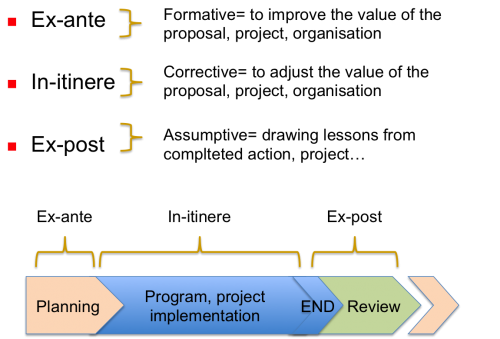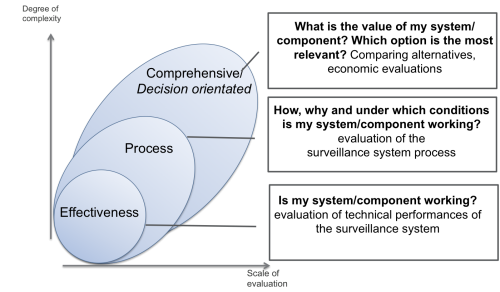This page has been developed by M. Peyre, CIRAD-AGIRs
1. Why do we need to evaluate?
There could be many perceptions about the primary purpose of evaluation:
- To plan , to re-design
- To ensure reaching the objectives
- To takethe right corrective actions
- To make changes
- To demonstrate quality of the data generated
- To ensure effectiveness of the actions
- To advocate for funds
- To ensure trust
Hereis a non exaustive list, evaluationcancontribute to to informed decision making and more enlightened change by ensuring better programs, systems, results; can help in precipitating needed change to take corrective actions; to demonstrate data quality and ensuring access to international trade market for example; to ensure that the action taken will be effective; to advocate for funds.
A very important aspect is that evaluation will contribute to ensure trust and empowering all stakeholders not only by the demonstration of one or many of the elements already mentioned but also by engaging them in the evaluation process;
Evaluators should aim to construct and provide the best possible information to provide objective, independent and transparent information on the value of whatever is being evaluated.
2. What evaluation can do?
- Systematic assessment against standards
- Ascertain the degree, value of acheivement
- Help in decisionmaking
- Enable reflection
- Enable futur changes
3. When to evaluate?

4. Different types and level of evaluation
